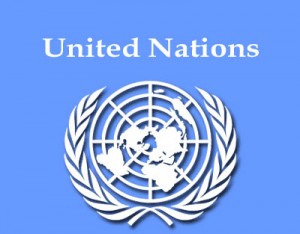 (Reuters) - Iran's silencing of journalists and opposition leaders could jeopardize the legitimacy of the presidential election in June, a�United Nations�human rights investigator said on Tuesday.
(Reuters) - Iran's silencing of journalists and opposition leaders could jeopardize the legitimacy of the presidential election in June, a�United Nations�human rights investigator said on Tuesday.Ahmed Shaheed, U.N. special rapporteur on human rights in�Iran, said that dozens of Iranian journalists were behind bars, including 17 arrested during one week in January and charged with communicating with foreign news outlets or rights groups.
"I am concerned that, with elections around the corner in June, this sort of accusations against journalists does not bode well for the prospect of a free and fair election in the country," Shaheed told a news briefing.
At least 10 lawyers are in custody, including Nasrin Sotoudeh, Abdolfattah Soltani and Mohammad Ali Dadkhah, for crimes including "spreading propaganda against the system through interviews with foreign media", he told the U.N. Human Rights Council during a two-day debate on�Iran.
Freedom of expression and of association are essential conditions for exercising the right to vote, yet hundreds of political prisoners remain in custody, he said.
Opposition leaders Mehdi Karoubi and Mir Hossein Mousavi, both candidates in the 2009 presidential election, are under house arrest following mass protests over alleged fraud in the return to power of President Mahmoud Ahmadinejad that year.
Some analysts say Iran's Islamic clerical leadership sees the risk of more serious unrest in the upcoming election and is cracking down in advance to minimize the impact.
"I wish to point out that in light of elections coming up, I have expressed concern about the continued detention of Mr. Karoubi and Mr. Mousavi whom a U.N. working group deemed last year were detained illegally, or arbitrarily," Shaheed said.
In a report two weeks ago to the U.N. Human Rights Council, Shaheed said that Iran had stepped up executions of prisoners including juveniles as well as arrests of dissidents who were often tortured in jail, sometimes to death.
An Iranian official, Mohammad Javad Larijani, secretary-general of Iran's High Council for Human Rights, last Friday accused Shaheed of receiving bribes from the United States, according to an Iranian news agency report.
"I find those allegations preposterous and not worthy of coming from the head of a human rights organization," Shaheed told Reuters on Tuesday. "I am not the beneficiary of funds from any government. My fact-finding missions are funded by the U.N."
IRAN REJECTS REPORT
Iran has not allowed Shaheed, a former foreign minister of Maldives, to enter the country to pursue allegations of abuses including systematic torture. His report was based on interviews with 169 people, two-thirds of them contacted inside Iran.
Larijani, in a speech on Monday, rejected Shaheed's report as "an unhealthy, non-objective and counter-productive exercise initiated by the United States and its European allies".
"This behavior and work of the special rapporteur in no way meets the minimum standards of fairness and impartiality," he told the Geneva forum. "The rapporteur has reduced himself to a political opponent acting against the Islamic Republic of Iran."
The council's president, Polish Ambassador Remigiusz Henczel, reprimanded Larijani for his "derogatory remarks" about Shaheed and said that there was no room for personal attacks.
Larijani clarified on Tuesday that "the intention was not to target the personal integrity of the special rapporteur".
Shaheed, during the debate on Iran, voiced concern about harassment of religious minorities including the Bahai's, and the lesbian, gay, bisexual and transgender (LGBT) community.
"With regard to Internet freedom and the access to information in the republic, I am concerned at the practices of jamming of broadcasts from foreign international media outlets."
The European Union imposed sanctions on Tuesday on an Iranian police unit monitoring the Internet, as well on several judges and media bosses the bloc blames for human rights violations in the Islamic Republic.
U.S. Ambassador Eileen Chamberlain Donahoe said Shaheed's findings were serious and "indicative of an intensifying crackdown. This campaign of harassment seeks to quash all remaining dissent before Iran's presidential election".
Ahmadinejad is barred from running again after two consecutive terms and his successor is likely to be selected from among a handful of top politicians mostly known for loyalty to Supreme Leader Ayatollah Ali Khamenei.
By Reuters
The Iran Project is not responsible for the content of quoted articles.










